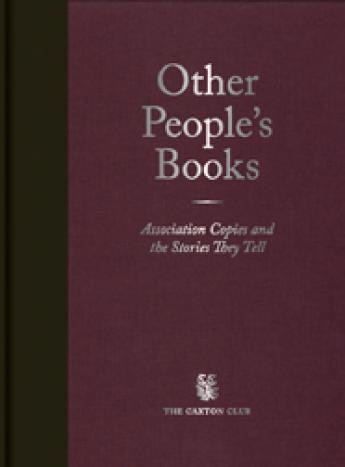Other People's Books - Book Lovers Fear Dim Future for Notes in the Margins

Dirk Johnson in The New York Times
"Locked in a climate-controlled vault at the Newberry Library here, a volume titled 'The Pen and the Book' can be studied only under the watch of security cameras. Mark Twain left a comment about 'Huckleberry Finn', in his copy of 'The Pen and the Book' by Walter Besant."
"The book, about making a profit in publishing, scarcely qualifies as a literary masterpiece. It is highly valuable, instead, because a reader has scribbled in the margins of its pages. The scribbler was Mark Twain, who had penciled, among other observations, a one-way argument with the author, Walter Besant, that 'nothing could be stupider' than using advertising to sell books as if they were 'essential goods' like 'salt' or 'tobacco'.”
"When Nelson Mandela was imprisoned in South Africa in 1977, a copy of Shakespeare was circulated among the inmates. Mandela wrote his name next to the passage from 'Julius Caesar' that reads, 'Cowards die many times before their deaths'.”
Annotations are invaluable for literary research and for book collectors. The comments written by authors, scientists, scholars or other "important" people alongside the text passages tell a very special story of a book. What did people think about it? Was it highly esteemed or condemned? Who read it? Why? Who possessed the book? What did, for example, Mark Twain read? What Samual Taylor Coleridge? Jane Austen? John Maynard Keynes? René Descartes? The advantage of a printed book is that these annotations have been preserved through the centuries. The Caxton Club will sponsor a symposium titled “Other People’s Books: Association Copies and the Stories They Tell”.
Snippets from an article by Dirk Johnson.
>>> Book Lovers Fear Dim Future for Notes in the Margins. Dirk Johnson in The New York Times (February 20, 2011)
OTHER PEOPLE'S BOOKS: ASSOCIATION COPIES AND THE STORIES THEY TELL
Introduction by G. Thomas Tanselle. Chicago, The Caxton Club 2011. pp 214. Hardcover
"Other People's Books" is published by The Caxton Club on the occasion of the symposium, with an introduction on the history of association copies by Thomas Tanselle. The book tells the stories of fifty-two presentation copies from 1470 to 1986, their subjects ranging from astronomy, ornithology, political science, and psychology, to art, film, history, and literature. While many of them are presentation inscriptions directly from the author, others were inscribed by someone who was closely connected with the authors. The book highlights the owners of these volumes now, many of whom are famous names in literature and history or scholars and collectors.
>>> "Other People's Books" is distributed by Oak Knoll
